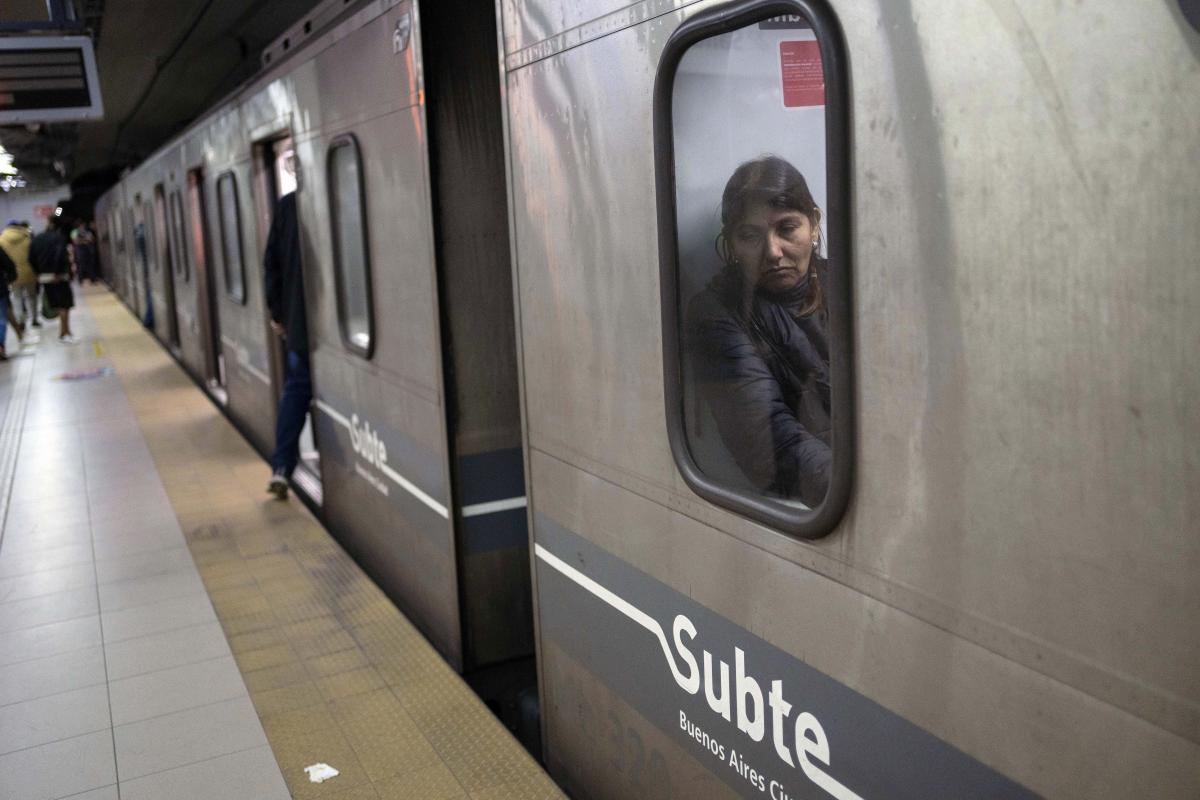BUENOS AIRES, Argentina (AP) — Argentine commuters in Buenos Aires on Friday were struck by an abrupt 360% boost in train fares, among the most significant cost walkings in libertarian President Javier Milei ‘s severe spending plan austerity project.
After weeks of hearings, an Argentine judge on Thursday raised an order that had actually briefly obstructed the scheduled boost in train fares. That cleared the method for the modification to work Friday early morning as workplace employees throughout Buenos Aires streamed through the gates of South America’s earliest underground city.
Public transportation fares are a delicate problem throughout Latin America, where inequality is deeply established and outrage activated by city cost walkings have actually stimulated social discontent in the past, such as Chile’s 2019 mass demonstrations.
Overnight, the cost of a single trip in Buenos Aires more than tripled from 125 pesos (14 cents) to 574 pesos (64 cents), intensifying an unpleasant expense of living crisis in Argentina.
President Milei is slashing public costs on whatever from aids to state business as part of an extreme free-market experiment targeted at restoring the nation’s reliability with foreign financiers and taming devaluation.
However a minimum of in the short-term, his deregulation and austerity procedures have actually risen inflation — now at 289% yearly, amongst the greatest rates on the planet — and made life harder for common Argentines as the economy slips into economic crisis.
It’s the 3rd time this year that inflationary spikes struck train fares — simply 80 pesos last December — as Milei cuts federal aids for public transportation, requiring local government to raise expenses. Costs for buses and trains in the vast city of Buenos Aires have actually likewise increased gradually, although not in a one-time cost bump similar to the city.
Local authorities in Buenos Aires stated fares would reach 650 pesos (73 cents) on June 1 however that they would postpone till Aug. 1 another cost boost to 757 pesos, “with the goal of lessening the effect on riders’ pockets.”
Low fares have actually long been a benefit for homeowners, particularly those evaluated of main Buenos Aires who commute cross countries to work. However the low-cost fares — like other aids for standard products — likewise make up a big and growing expense that the greatly indebted federal government states it can’t pay for in the middle of Argentina’s worst monetary crisis in twenty years.
The Buenos Aires underground transit system — among the very first to be integrated in the world — was as soon as a poignant sign of the city’s extravagant early 20th-century wealth. However in current years it has actually fallen under disrepair.
